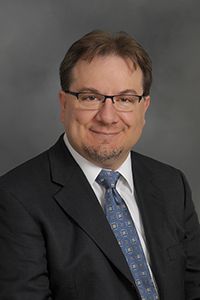Article
Feeling Fatigued? Look in Your Genes
Why can some people function fine on almost no sleep while others can't? The answer is in our genes.
Why is it that some people are full of energy and gusto after getting just four hours of sleep, while others can hardly function? According to new research, published today in Neurology, the answer lies in our genes.
For the study, researchers from the University of Pennsylvania School of Medicine investigated the gene variant DQB1 *0602, which is closely associate with narcolepsy, although having the variant doesn’t necessarily mean that a person will develop narcolepsy. In fact, depending on population, 12-38% of those with the variant have no sleep disorder and can be considered healthy sleepers. It should also be noted that, although uncommon, narcolepsy can occur in people without DQB1 *0602.
Looking at 92 healthy adults without DQB1 *0602 and 37 healthy adults with the gene variant but no sleep disorders, the research team conducted their research in a sleep laboratory. All participants spent 10 hours in bed for the first two nights and then for the following five nights underwent chronic partial sleep deprivation, with which they were only allowed four hours in bed per night. Lights were kept on for the remaining hours, and participants were given reading material, games, and movies to help them remain awake.
During the daytime, the investigators tested participants’ sleep quality, self-rated sleepiness, memory, attention, and ability to resist sleep while not in bed.
Whether fully rested or sleep deprived, those with DQB1 *0602 were sleepier and more fatigues than participants without the gene variant, likely due to more fragmented sleep; for instance, people with DQB1 *0602 woke up during the fifth night an average of almost four times, whereas those without DQB1 *0602 woke up an average two times during the same night. Further, during the first two nights, when participants were allowed 10 hours in bed, participants with the gene variant had a lower desire to sleep.
Deep sleep was obtained less in people with the gene variant than those without. For example, those with the variant got an average 34 minutes of stage three sleep during the second fully rested night, whereas those without the variant got 43 minutes. Also, during the fifth night of sleep deprivation, stage three sleep was obtained for an average 29 minutes in those with the variant, compared to an average 35 minutes in those without DQB1 *0602.
Yet, remarkably, performance on tests of memory and attention was the same for both patient groups, and no difference was seen between the groups in regards to ability to resist sleep during the daytime.
“This gene may be a biomarker for predicting how people will respond to sleep deprivation, which has significant health consequences and affects millions of people around the world,” said lead author Namni Goel, PhD. “It may be particularly important to those who work on the night shift, travel frequently across multiple time zones, or just lose sleep due to their multiple work and family obligations. However, more research and replication of our findings are needed.”
What can you learn from these findings? Will they help you treat your patients with sleep disorders, or patients who are suspected of having a sleep disorder? Would testing for DBQI *0602 allow neurologists, and other physicians who treat sleep disorders, the ability to identify those who are more likely to perform better or worse under sleep deprivation? Would this not be of tremendous use to the military? What about use as a screener for medical students before beginning residency? If you can't perform well when you’re not getting much sleep, can you fully perform the duties of a resident, or a physician?





